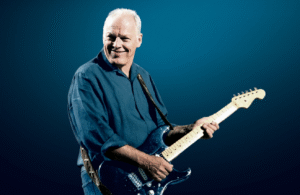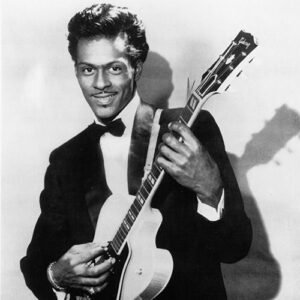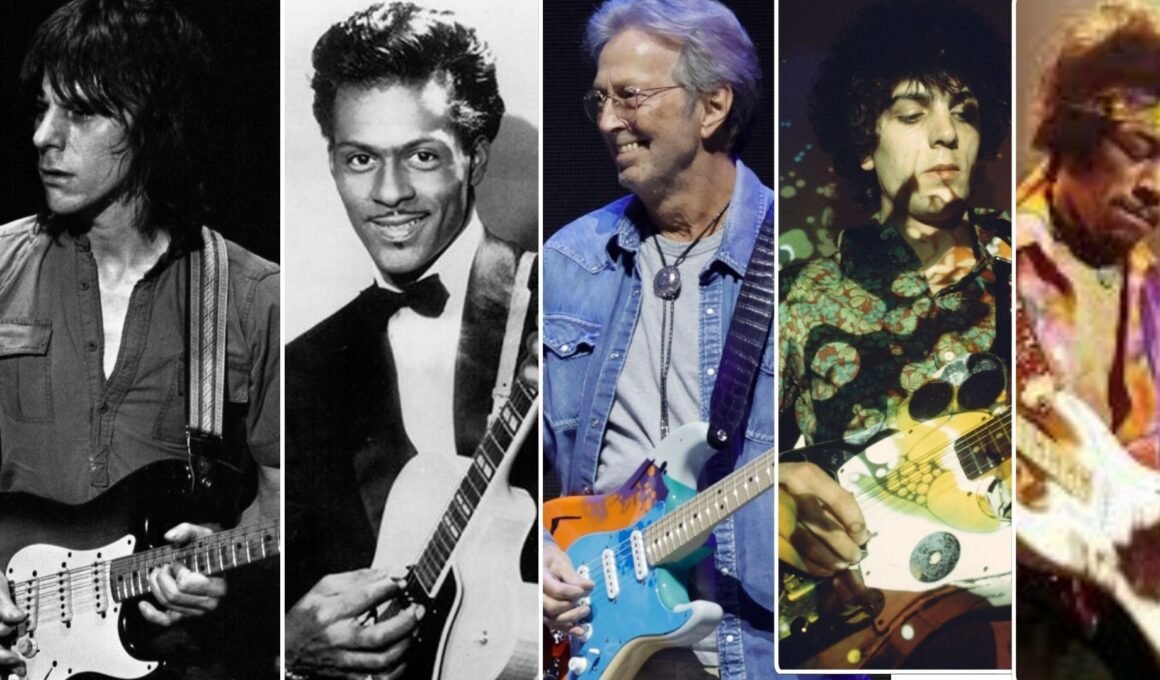David Gilmour, widely recognized as one of rock’s most influential guitarists, has always remained humble despite his immense success. When once voted the greatest Fender guitarist of all time, surpassing legends like Eric Clapton and Jimi Hendrix, he famously responded, “Best ever Fender player will come around again, and it will be Eric or Jimi or someone. You can’t believe that stuff. Much as I’d love to believe I’m the best ever Fender guitar player, it just doesn’t really make sense.”

This grounded perspective defines Gilmour’s approach to his craft. Throughout his decades in the spotlight, he has consistently acknowledged the musicians who shaped his distinctive sound. Let’s delve into the guitarists Gilmour himself has credited as his favorites.
The Early Days: Learning Through Imitation
Gilmour has always been transparent about his journey, emphasizing the importance of copying as a young musician. He once told Uncut, “Trying to be too original when you’re too young is possibly not the best thing. But I learned copying Pete Seeger, Lead Belly, Jeff Beck, Eric Clapton, Jimi Hendrix. All sorts of people.”
Unlike many, Gilmour was self-taught, learning the basics from Pete Seeger’s classic guitar manual and developing his skills by immersing himself in the music of others.
Key Influences: From Blues to British Rock
By the time Gilmour joined Pink Floyd in 1968, stepping in for Syd Barrett, his style had already been significantly influenced by two titans of the era: Eric Clapton and Jimi Hendrix. Clapton’s work with Cream was an early inspiration, but Hendrix’s arrival in London truly transformed the scene. Gilmour recalled, “When Hendrix and Clapton played together at Regent St Polytechnic, the whole music scene lit up.” Hendrix’s intense and boundary-pushing playing even impacted Pink Floyd’s sonic explorations, though some, like Keith Richards, suggested it might have been a detriment to Gilmour’s development.

The foundational sounds of rock and roll also played a crucial role. Chuck Berry’s raw energy and innovative licks were integral to Gilmour’s early development, with Gilmour noting, “I think the same sources are there that have always been there at the heart of everything I do.” Hank Marvin of The Shadows, with his clean, tremolo-infused sound, was another significant British influence, beloved by the public.
Beyond Rock: Diverse Inspirations
Gilmour’s musical palette extended beyond traditional rock and blues. He held a deep admiration for The Beatles, especially George Harrison’s subtle and melodic guitar work. Gilmour even admitted, “I really wish I had been in The Beatles. [They] taught me how to play guitar; I learnt everything. The bass parts, the lead, the rhythm, everything.”
Jeff Beck, a pioneer in London’s electric blues scene with The Yardbirds, also captivated a young Gilmour with his innovative, almost futuristic style.
His influences further branched into folk and blues with masters like Pete Seeger and Lead Belly, who introduced him to fingerpicking and storytelling through guitar. John Fahey’s intricate acoustic work broadened Gilmour’s understanding of melody and technique.
Gilmour also drew inspiration from innovators like Joni Mitchell, admiring her inventive tunings and songwriting, and Roy Buchanan, a Telecaster virtuoso known for his emotive playing.
The Most Personal Influence: Syd Barrett

Perhaps the most profound influence on Gilmour was his longtime friend and the man he replaced in Pink Floyd, Syd Barrett. Their shared history of jamming and busking across Europe since 1965 meant Barrett’s experimental approach and unique vibrato techniques left an indelible mark on Gilmour’s style. Despite taking over as Pink Floyd’s lead guitarist, Gilmour never forgot Barrett’s profound impact on him as a musician.
David Gilmour’s Enduring Legacy
Despite this rich tapestry of influences, Gilmour’s sound remains uniquely his own. As he articulated, “So many players inspired me. I learned from Pete Seeger, Hank Marvin, Lead Belly, Joni Mitchell, John Fahey, Roy Buchanan, Jeff [Beck] and Eric [Clapton] and dozens more. I copied—don’t be afraid to copy—and eventually something that I suppose that I would call my own appeared.”
Above all, Gilmour has always viewed the guitar as his primary means of expression. He once confessed to “moments of huge frustration because of my inability to express myself linguistically as clearly as I would like to.” Yet, with his legendary solos, such as the iconic one in “Comfortably Numb,” his guitar speaks volumes without the need for words.
David Gilmour’s 12 Favorite Guitarists:
- Eric Clapton
- Jimi Hendrix
- Jeff Beck
- Chuck Berry
- George Harrison
- Joni Mitchell
- Hank Marvin
- Pete Seeger
- John Fahey
- Roy Buchanan
- Lead Belly
- Syd Barrett






